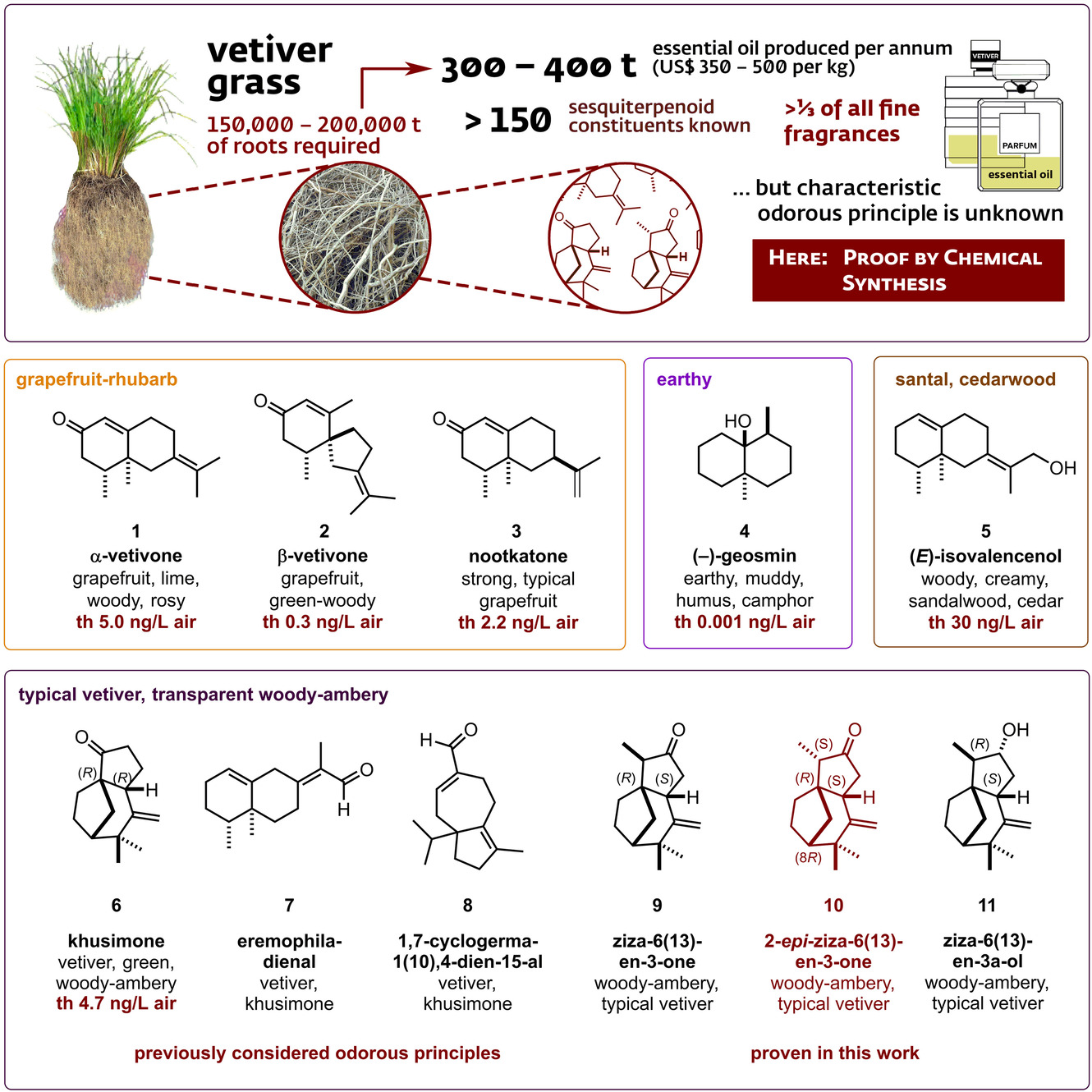
I have occasionally covered the topic of colours here, such as those of flowers and minerals, since it is at least possible to illustrate these using photographs or colour charts to illustrate the theme.

I have occasionally covered the topic of colours here, such as those of flowers and minerals, since it is at least possible to illustrate these using photographs or colour charts to illustrate the theme.
AbstractVetiver oil, produced on a multiton‐scale from the roots of vetiver grass, is one of the finest and most popular perfumery materials, appearing in over a third of all fragrances. It is a complex mixture of hundreds of molecules and the specific odorant, responsible for its characteristic suave and sweet transparent, woody‐ambery smell, has remained a mystery until today. Herein, we prove by an eleven‐step chemical synthesis, employing a novel asymmetric organocatalytic Mukaiyama–Michael addition, that (+)‐2‐epi‐ziza‐6(13)en‐3‐one is the active smelling principle of vetiver oil. Its olfactory evaluation reveals a remarkable odor threshold of 29 picograms per liter air, responsible for the special sensuous aura it lends to perfumes and the quasi‐pheromone‐like effect it has on perfumers and consumers alike.